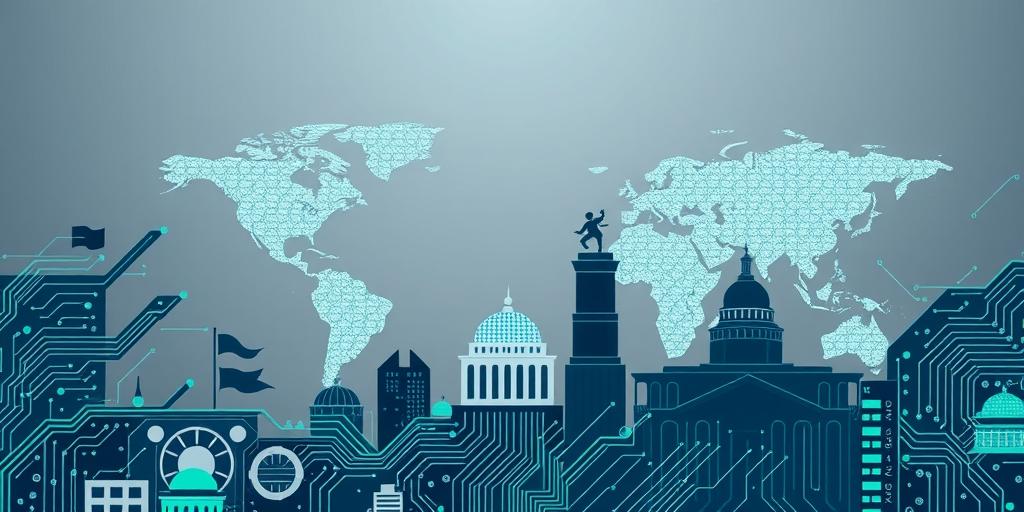The Geopolitics of Technology and Data: Navigating a Complex Landscape
In an increasingly interconnected world, technology and data have emerged as critical factors shaping international relations and national power. The geopolitics of technology and data encompass the complex interplay of political, economic, and strategic interests surrounding the development, control, and utilization of these resources. This article delves into the key aspects of this evolving landscape.
The Rise of Tech Nationalism
Tech nationalism refers to the policies and strategies employed by countries to promote their own technological capabilities and protect their domestic industries from foreign competition. This approach is driven by a desire to achieve technological self-sufficiency, enhance national security, and gain a competitive edge in the global economy. Examples of tech nationalism include:
- Investment in domestic research and development: Governments are increasingly investing in R&D to foster innovation and create new technologies within their borders.
- Protectionist trade policies: Tariffs, quotas, and other trade barriers are used to shield domestic tech companies from foreign competition.
- Cybersecurity measures: Stricter cybersecurity regulations and data localization requirements are implemented to protect national data and infrastructure.
Data as a Strategic Asset
Data has become a strategic asset, offering valuable insights into consumer behavior, economic trends, and even national security threats. Countries are vying for control over data flows and implementing policies to ensure that data generated within their borders is stored and processed locally. This trend is driven by concerns about privacy, security, and the potential for foreign governments to access sensitive information.
The Geopolitical Implications of Emerging Technologies
Emerging technologies, such as artificial intelligence (AI), blockchain, and quantum computing, have the potential to disrupt existing power structures and create new geopolitical fault lines. Countries that lead in these technologies will likely wield significant economic and strategic advantages. The race to develop and deploy these technologies is intensifying, with governments investing heavily in research, infrastructure, and talent development.
Key Players and Their Strategies
Several countries are vying for dominance in the geopolitics of technology and data. Some of the key players and their strategies include:
- United States: The U.S. seeks to maintain its technological leadership through investments in R&D, support for private sector innovation, and strategic alliances with like-minded countries.
- China: China is pursuing a strategy of technological self-reliance, investing heavily in domestic innovation, and promoting its own tech companies on the global stage.
- European Union: The EU is focused on regulating technology and data to protect privacy, promote competition, and ensure ethical AI development.
Challenges and Opportunities
The geopolitics of technology and data presents both challenges and opportunities for countries. Some of the key challenges include:
- Cybersecurity threats: The increasing reliance on technology and data has created new vulnerabilities to cyberattacks and espionage.
- Data privacy concerns: The collection and use of personal data raise concerns about privacy and the potential for misuse.
- Digital divide: The unequal access to technology and data can exacerbate existing inequalities and create new ones.
Some of the key opportunities include:
- Economic growth: Technology and data can drive economic growth by creating new industries, improving productivity, and fostering innovation.
- Improved public services: Technology and data can be used to improve public services, such as healthcare, education, and transportation.
- Enhanced national security: Technology and data can enhance national security by improving intelligence gathering, cybersecurity, and defense capabilities.
Conclusion
The geopolitics of technology and data is a complex and evolving landscape with significant implications for international relations and national power. Countries must navigate this landscape carefully, balancing the need to promote innovation and economic growth with the need to protect their security and privacy. By understanding the key trends, challenges, and opportunities in this area, countries can position themselves for success in the digital age.









